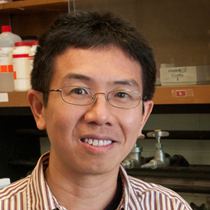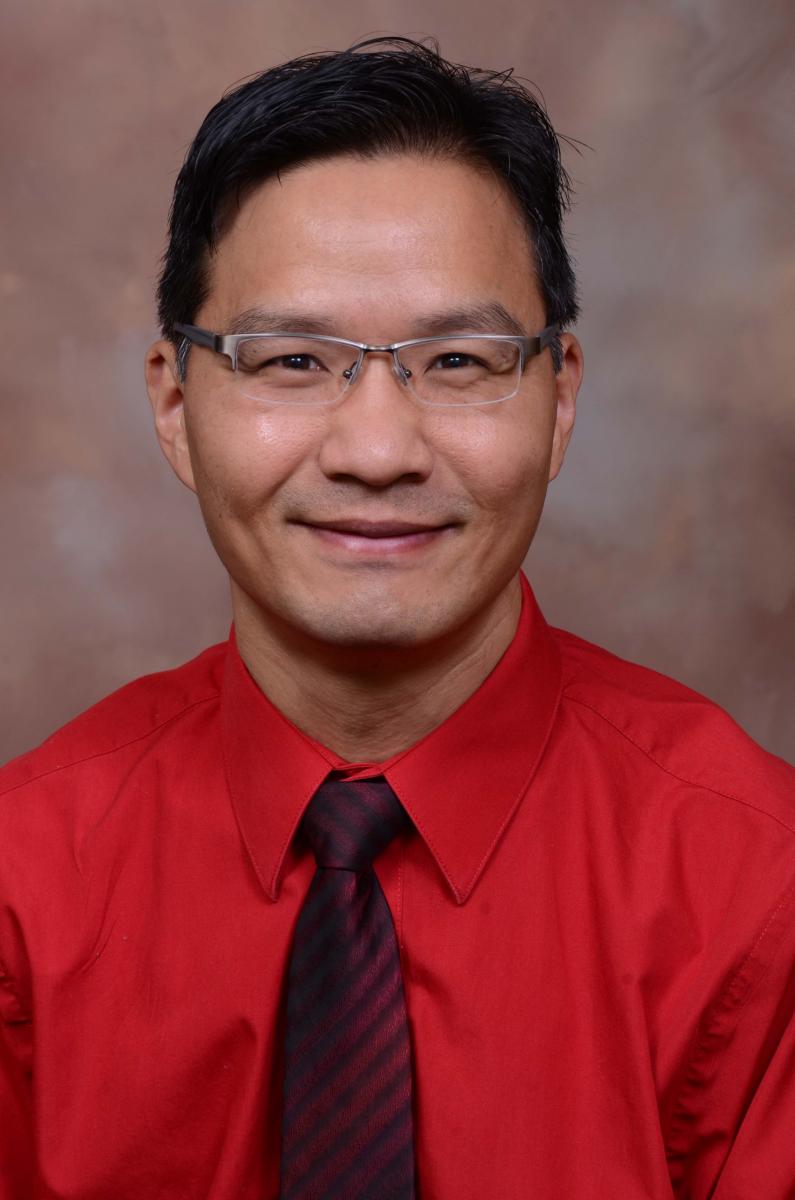Signaling mechanisms are a critical component of disease research and an ongoing focus for most of the mentors in the MMoD program. Of interest are mechanisms by which extracellular signals for fundamental tissue integrity are produced, sensed, and propagated. These signals include lipid- and carbohydrate- based molecules, redox sensors, microbial or host immune response triggers, and many others. Some elegant aspects of our training capacity in molecular signaling derive from (1) synthetic organic chemists who focus on devising new methods to generate small molecules with clear biological applications as probes and/or inhibitors, (2) analytical chemists who design new approaches for studying biological interactions and use these interactions in flow-based biosensors or separation schemes that permit testing of hypotheses about molecular signals in a quantitative manner, and (3) chemical engineers who specialize in large-scale protein production and novel tissue engineering matrices.
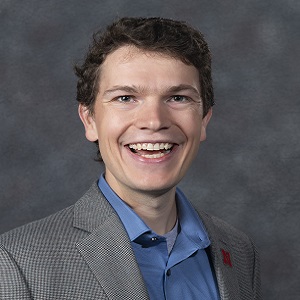
James Checco
Assistant Professor of Chemistry
Research focus: Chemical biology, bioanalytical chemistry, design and synthesis of biomolecules, mass spectrometry, peptide-protein interactions, cellular communication
University of Nebraska-Lincoln
Chemistry Department
409D HAH
Lincoln NE 68588-0304
402-472-2654
Research interests
Our work focuses on understanding neuropeptides and peptide hormones that act as cell-to-cell signaling molecules. These biomolecules are important because their functions underlie critical biological processes and complex behaviors. Mimicking or antagonizing peptide-receptor interactions are critical strategies for understanding normal cell-to-cell communication and for treating diseases caused by signal dysregulation. Despite their importance in biology, the molecular-level details governing the signaling of many peptides are not well-understood. To address this challenge, the Checco Lab develops strategies to identify previously uncharacterized peptide-protein interactions, and to design novel compounds to modulate these interactions in a desired manner. From this work, our research will advance the understanding of specific cell-cell signaling pathways, identify new pathways for further exploration, and provide innovative starting points for future therapeutics.
Research interests
VEGFA is alternatively spliced to produce both pro-angiogenic and anti-angiogenic isoforms which appear to have opposing functions. The balance of these isoforms determines tissue-specific growth, differentiation, or proliferation status. Dr. Cupp's laboratory has shown that pro-angiogenic VEGFA isoforms promote ovarian follicular angiogenesis that is critical for follicle development and progression, whereas anti-angiogenic VEGFA isoforms arrest follicle growth and may cause atresia. Her group further discovered a naturally occurring bovine infertility model of androgen excess with elevated anti-angiogenic VEGFA isoforms, the symptoms of which mimic those of human polycystic ovarian disease. Students in her laboratory currently have projects using this model to define mechanisms of the human disease and to identify biomarkers to predict bovine infertility that may translate to human disorders. Polycystic ovarian disease and mechanisms regulating stem cell populations are both clinically correlated with obesity and diabetes. Her work also has an oxidative stress component because VEGFA production and angiogenesis are directly related to hypoxia and reactive oxygen species generation.

David Berkowitz
Willa Cather Professor of Chemistry
Research focus: Chemical biology and synthetic organic chemistry.
University of Nebraska-Lincoln
Chemistry Department
824A HAH
Lincoln NE 68588-0304
402-472-3634
Research interests
Research in the Berkowitz laboratory is focused on the development of novel chemical and enzymatic methods to synthesize phosphoserine analogues, mechanism-based inhibitors, and mechanistic chemical probes for enzymes in amino acid synthesis and salvage pathways. Students in the Berkowitz lab are working on in-cell use of phosphoserine mimetics as probes for phosphatase activity, and have recently collaborated to create an enantioselective inhibitor of lysine decarboxylase and solve the x-ray crystal structure of the inactive complex.
Research interests
Tyrosine O-sulfation reactions are a key cellular regulatory element that is poorly understood. Research in the Guo laboratory uses innovative chemical probes to determine effectors of sulfotyrosine modification. In addition, his laboratory routinely collaborates with others in in the areas of chemistry, biochemistry, biology, and engineering to facilitate use of unnatural amino acid substitutions to probe various types of cellular interactions.

Tomas Helikar
Susan J. Rosowski Associate Professor of Biochemistry
University of Nebraska-Lincoln
Biochemistry Department
1901 Vine Street
Beadle Center N234
Lincoln NE 68588-0664
402-472-3530
Research interests
Using computational, multi-scale modeling and high-throughput data analysis, the Helikar groups seeks to improve understanding of mechanisms and dynamics of complex signaling networks that govern the healthy state of an organism, how aberrant changes in these networks result in diseases, and how we can strategically develop more effective therapies to challenge these diseases. Second, we develop computational biology software tools to make computational analyses and modeling accessible to researchers with a wide range of computational background and skills through collaborative and crowd-sourcing efforts. Third, we focus on workforce development by transforming the way life sciences students learn about complex living systems by developing, implementing, and evaluating computational modeling as a unique and user-friendly pedagogical aid.
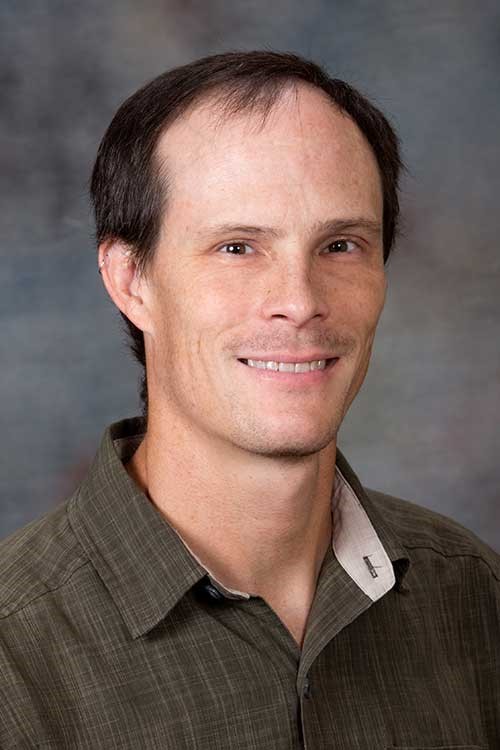
Colin Meiklejohn
Assistant Professor of Biological Sciences
University of Nebraska-Lincoln
School of Biological Sciences
Manter Hall 302
Lincoln NE 68588-0118
402-472-2720
Research interests
Drosophila spermatogenesis is a valuable model system for studying stem cell biology, molecular signaling and cellular differentiation, and gene regulation. It also provides an important model for studying evolutionary processes, as the genes controlling spermatogenesis are unusually rapidly evolving and accompany the early evolution of male sterility-causing incompatibilities, indicating an important role for spermatogenesis in speciation. Students in the Meiklejohn lab utilize functional and evolutionary genetics and genomics to discover the mechanisms that regulate spermatogenesis within species and its contribution to the formation of new species. These discoveries inform insect control strategies and our understanding of gametogenesis and fertility in humans.
Research interests
The research program in Dr. Sun’s lab focuses on how metabolic stress affects healthy humans, particularly the role of long non-coding RNA in metabolic diseases such as obesity and atherosclerosis. Cell senescence is a stable form of cell cycle arrest, which plays a causative role in the pathology of obesity and cardiovascular disease. A variety of approaches including in vitro cell culture, in vivo knockout or transgenic mouse models, and multiple 'omics' technologies will be employed to identify the new mechanisms by which long non-coding RNAs regulate cell senescence in obesity and atherosclerosis.
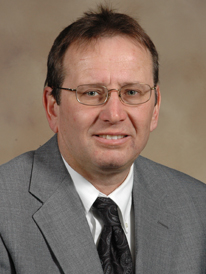
William Velander
Distinguished University Professor of Chemical and Biomolecular Engineering
Research focus: Production of recombinant factor IX for intravenous and oral hemophilia B therapy using current good manufacturing practice (cGMP).
University of Nebraska-Lincoln
College of Engineering
207B OTHM
Lincoln NE 68588-0643
402-472-3697
Research interests
Blood coagulation factors are produced in abundance to treat human hemophilia A and B. Dr. Velander's laboratory uses the milk of transgenic pigs to produce recombinant factors VIII and IX, from which they can subsequently be purified. His group has extensively characterized factors produced by this method, which have relatively low specific activity, and has shown that differential N-glycan linkages during post-translational modification of the protein for secretion have a strong impact on function. Students in the Velander laboratory are working to identify novel subpopulations of the glycosylated proteins, which are purified, characterized in vitro, and preclinically studied in pharmacokinetic animal models. As a biomolecular engineer, Dr. Velander's expertise in the design and large-scale production of complex blood proteins is well complemented by research interests in the protein chemistry laboratories.
